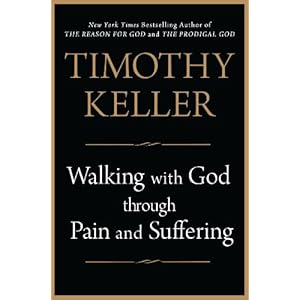What person, place, or thing holds the position of supremacy in your affections in such a way that nothing rivals its prominence? What do you hold so dearly that nothing, NOTHING rivals its position on the throne of your heart?
In some ways Christmas Eve may be one of the most dangerous times of the year to come to a worship service. Our hearts are distracted: there are travel plans, turkeys in the oven, trinkets to be opened, and family to be received. Materialism and gluttony are just hours away.
If you find your heart being divided today, I would like to commend to you Mary’s treasure. "Mary treasured up all these things, pondering them in her heart" (Luke 2:19). The old KJV translates that “Mary kept these things,” but all the modern translations have rightly rendered it “treasured.” The Greek word means to safeguard, to defend, to lock tight, to cherish, to protect!
We might ask, WHAT THINGS did Mary treasure? What specifically does Luke 2:19 mean when it says that “all these things” she both treasured and pondered in her heart?
Ironically, Mary did receive literal treasure in Matthew’s birth narrative. You recall, the Magi brought to Christ three gifts of gold, frankincense and myrrh. And what was Mary’s response to these gifts in Matthew 2:11,
"And going into the house [the Magi] saw the child with Mary his mother, and they fell down and worshiped him. Then, opening their treasures, they offered him gifts, gold and frankincense and myrrh."
Mary’s response? Nothing. Silence. I’m sure she said ‘thank you,’ but Scripture does not say she treasured the treasure!! In fact, if there is an emphasis at all on materialism, it’s on poverty not riches. Three times (vs. 7, 12, 16) Luke reminds us that the baby is in a manger, a crude box where donkey drool.
Do not be deceived by ‘treasure’ that looks like treasure, but is not infinitely valuable! What good is mere gold when eternal riches are before you? A block of gold and a lump of coal are both equally ineffective in purchasing joy, forgiveness, peace, or eternal life!
So what did Mary treasure? A good Sunday School answer would be that Mary treasured her son. It would make sense, and I don’t think any of us would complain if verse 19 told us that Mary treasured her baby. Luke could have written, "Mary treasured her child and pondered her family in her heart."
But Luke didn't write that.
There is no doubt that Mary ‘treasured’ Jesus as her natural born son. She was the one family member of Jesus who truly believed and followed Him all the way to the cross, watching the Romans beat and pierce His flesh to the cross (John 19:25).
There is no doubt that Mary loved her baby as a mother should. But that’s not the point of verse 19. Every mother—except for the deranged—treasures their own child in the familial sense.
We know what Mary treasured: she treasured “all these things” (2:19) which refers directly back two verses to verse 17, "[The Shepherds] made known the saying that had been told them concerning the child" (Luke 2:17). And what the shepherds heard goes back to vs. 10-11,
"And the angel said to them, 'Fear not, for behold, I bring you good news of great joy that will be for all the people. For unto you is born this day in the city of David a Savior, who is Christ the Lord.'Aha! Here’s the real treasure! Here is what made Mary’s heart glad!
It's not just that she had a baby, but rather the identity and destiny of the baby: a joy not just for her own heart, but joy to all people! A Savior not just to her personally, but to all who repent and believe.
A multitude of angels attended the coronation of an infant and to exult in this divine decree. The night sky burst into a full panoply of radiant color as holy warrior-spirits beamed upon the Prince of Peace! Singing in unison “Glory! Glory! Glory to God in the highest and on earth peace among those with whom he is pleased!”(Luke 2:14).
Here is my definition of “treasuring": To treasure something means that you would gladly give the whole world to get it, and to joyfully refuse the whole world to keep it!
I suggest that today you and I treasure what Mary treasured: the announcement of the One who is the glory of God and the peaceful joy of men.
--Matthew Everhard is the Senior Pastor of Faith Evangelical Presbyterian Church in Brooksville, Florida.















